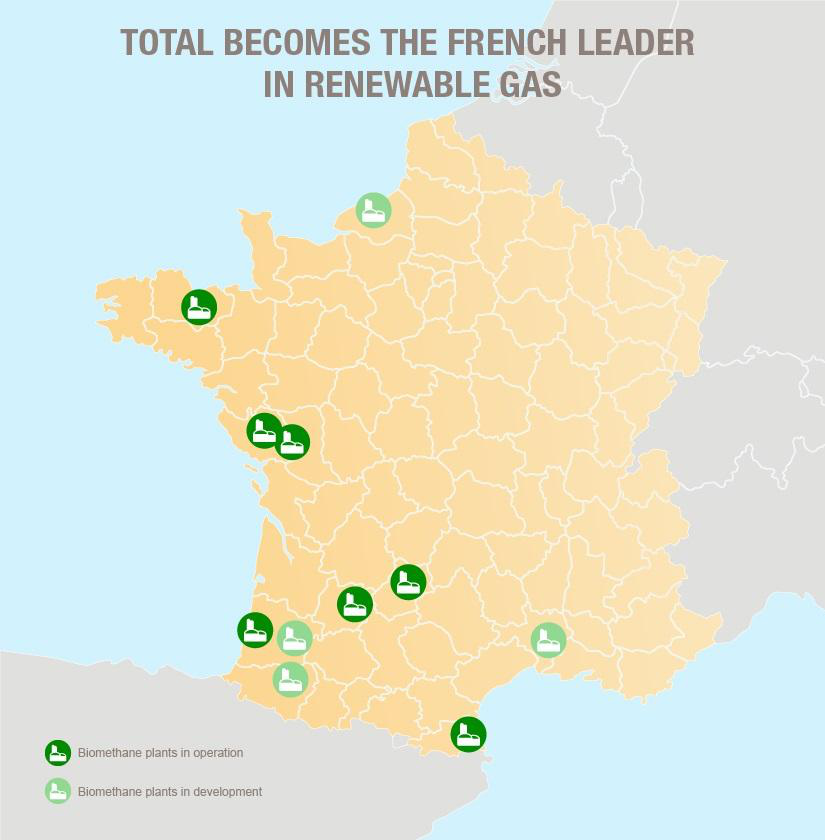
At the beginning of the year, Total took over Fonroche Biogaz, a leader in the French market for the production of renewable gas from anaerobic digestion, with a share of more than 10%, for 500 GWh of installed capacity in 2020 with seven plants in production and four under construction.
"This is an important step forward for us to realise bioLNG as a true marine fuel solution for decarbonising ships," said Lerome Leprince-Ringuet, managing director of bunkering unit Total Marine fuels Global Solutions, as reported by specialist agency Ship and Bunker.
Total has multi-year LNG supply contracts with container shipowner CMA CGM and cruise ship MSC, and has an 18,000 cubic metre LNG tanker on the way. The use of LNG may be sufficient to meet the IMO's 2030 decarbonisation targets but will not be sufficient to meet the 2050 target of total emissions elimination.
BioLNG and synthetic LNG produced using renewable energy could be gradually blended with fossil LNG to help shipping meet the more binding target, and this could be done using the current generation of gas-fuelled ships.
For the first bunkering in Rotterdam of CMA CGM's new gas-fuelled container ship, the CMG GGM Jacques Saade in November 2020, Total supplied bioGNL for about 12% of the 17,300 cu m of LNG it delivered to the ship. But the company said this was a one-off part, rather than a regular part of the ship's supply contract.
With the acquisition of Fonroche Biogaz, Total becomes a major player in renewable gas in France and Europe, and significantly strengthens its presence in the sector, already effective through its subsidiaries Méthanergy (combined heat and power production from biogas), PitPoint and Clean Energy (biomethane production and distribution through a network of Bio-CNG / Bio-LNG stations in the Benelux and the US respectively.
Philippe Sauquet, President Gas, Renewables & Power at Total said: "In 2020 we have announced our intention to contribute to the development of this sector, which we expect to become more competitive in the coming years. We intend to produce 1.5 terawatt hours (TWh) of biomethane per year by 2025 and Fonroche Biogas is therefore the cornerstone of our development in this market."
By 2030, Total plans to produce 4 to 6 TWh of biomethane per year.
More recently, ENI, already active with bio-refineries for the bio-blending of traditional fuels, also acquired FRI-ELBiogas Holding, a leader in Italy in biogas production. The acquisition was made through Ecofuel, the Eni company in charge of managing investments in the circular economy. FRI-ELBiogas Holding owns 21 plants for the generation of electricity from biogas and a plant for the treatment of FORSU - the organic fraction of municipal solid waste - which Eni intends to convert to the production of biomethane, with the aim of feeding more than 50 million cubic metres per year into the grid when fully operational.
With this acquisition, Eni lays the foundations to become the leading producer of bio-methane in Italy and complements the increase in Eni's CNG and LNG service stations. "With this transaction we have laid the foundations for strong growth in the biomethane sector," said Claudio Descalzi, Eni's CEO, "which will be distributed at Eni's service stations, both as compressed natural gas and liquefied natural gas."
The agreement is subject to certain conditions precedent, including authorisation from the relevant Antitrust authorities.
Source: Shipandbunker - Total - Eni
 EN
EN  it
it

